Eurasian Union – a Trinket for Three Comrades
Dragomir Ivanov, December 23, 2011
 The confession of the former (and future) president of Russia -Vladimir Putin - that the break-up of the Soviet Union is “the biggest geopolitical disaster of the last century” is widely known. It was made in the Russian parliament on 25 April 2005. Up until now, Mr Putin makes arbitrary assessments about the Soviet past – he either prizes the empire or distances himself from its inefficiency. At the end of his “business trip” to the PM’s office and on the eve of his third term in the Presidency he reached out to the old spell about the Eurasian union - a long-standing idea of Russian thinkers since the 20s and the 30s of the 20th century and a dream about a single state structure on the biggest continent.
The confession of the former (and future) president of Russia -Vladimir Putin - that the break-up of the Soviet Union is “the biggest geopolitical disaster of the last century” is widely known. It was made in the Russian parliament on 25 April 2005. Up until now, Mr Putin makes arbitrary assessments about the Soviet past – he either prizes the empire or distances himself from its inefficiency. At the end of his “business trip” to the PM’s office and on the eve of his third term in the Presidency he reached out to the old spell about the Eurasian union - a long-standing idea of Russian thinkers since the 20s and the 30s of the 20th century and a dream about a single state structure on the biggest continent.
In his article “The New Integration Project of Eurasia – a Future that is Being Born Today” published on 3 October this year, in the officious daily “Izvestia”, the Russian PM describes the Eurasian union as “a powerful supra-national alliance, capable to become one of the poles of the contemporary world by playing the role of an effective link between Europe and the dynamic Asian-Pacific region”. On the basis of a common political, economic, military, customs, humanitarian and cultural space there has to emerge a self-sufficient market.
The concept is based on several integration structures on the territory of the Commonwealth of Independent States (CIS), created in 1991:
- the Eurasian Economic Community (EEC). The organisation, which has as its goal the common market, was established on 10 October 2000 by Russia, Belarus, Kazakhstan, Tajikistan and Kyrgyzstan. Uzbekistan joined in 2006 and withdrew 2 years  later. Armenia, Moldova and Ukraine have observer status.
later. Armenia, Moldova and Ukraine have observer status.
- the Customs Union among Russia, Belarus and Kazakhstan. It was signed on 6 October 2007 and is already in force - since 1 July 2011 the customs border control between the three states is abolished. Kyrgyzstan joined the Customs union, Tajikistan, Moldova and even Syria have also demonstrated interest.
- the Single Economic Area (SEA). Sealed with a treaty on 19 September 2003 this is the matrix of the overall economic integration between Russia, Belarus and Kazakhstan. SEA has to enter into force on 1 January 2012. It is the founding rock of the construction of the Eurasian union. Mr Putin calls it “a historical milestone not only for our three countries but for all post-Soviet states”.
Integration à la Putin: “We do not press anyone”
In Moscow’s co-ordinate system all these formats are centred around Russia, Kazakhstan and Belarus. Two of these countries are already in a state union (Russia and Belarus). A union of the three would be the world's biggest, it terms of territory (over 20 million square km), and will have a population of more that 165 million people (respectively consumers). The area would be 6th in the world, in terms of GDP – about 2.55 trillion dollars (2011 estimates). Beside the harmonised actions on macroeconomic level and with regard to competition and technical rules, agricultural subsidies, transport regulations etc., Mr Putin mentions also a common visa and asylum policy - according to the example of Schengen.
The project is open and the most welcome to join are the CIS partners, because the Eurasian union is meant to be the next, and the higher, step of the integration. “We are not going to force or press anyone”, pledges Mr Putin and hurries to nullify the USSR analogies. “It is naïve to try to restore or copy what is left in the past, but close integration based on the new values, policy and economy is a bidding of the day”.
The Eurasian Union should relate directly with EU and later “a rational and balanced partnership” is necessary between the two structures. Mr Putin assigns to it a pompous and somewhat embarrassing task “for reshuffling of the geopolitical and geoeconomic configuration on the entire continent that would have an undoubtedly positive global effect”.
Nazarbayev’s vision: economic pragmatism and innovations
It is not particularly known that Nursultan Nazarbayev, the last leader of Kazakh communists in USSR and irremovable president of Kazakhstan since 1991 is reckoned to be the father of the Eurasian concept. Already in March 1994, at a lecture in the Lomonosov University in Moscow, he suggested CIS to be transformed into Eurasian union. At the end of October this year his reasoning on this was published in the Kazakh officious newspaper “Izvestia – Kazakhstan”.
In contrast to Mr Putin, Mr Nazarbayev embraces economic pragmatism and states 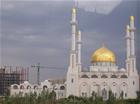 that the driving forces are the “economic interests and not abstract ideas and slogans”. His article clearly shows that Astana does not follow meekly the direction set by Moscow. This attitude has an explanation: this vast country is rich in oil and gas, in coals and metals and it pursues its own goals that are not necessarily identical with the hegemonic dreams of Kremlin. According to Nazarbayev, the Eurasian integration should be first of all voluntary and should not in any way suggest loss of political sovereignty. Kazakh self-confidence is obvious: “Objectively, Kazakhstan and Russia are the engines of Eurasian integration”. Mr Nazarbayev wishes even the executive bodies of EEC to have their seats in Astana – the geographical centre of the sub-continent.
that the driving forces are the “economic interests and not abstract ideas and slogans”. His article clearly shows that Astana does not follow meekly the direction set by Moscow. This attitude has an explanation: this vast country is rich in oil and gas, in coals and metals and it pursues its own goals that are not necessarily identical with the hegemonic dreams of Kremlin. According to Nazarbayev, the Eurasian integration should be first of all voluntary and should not in any way suggest loss of political sovereignty. Kazakh self-confidence is obvious: “Objectively, Kazakhstan and Russia are the engines of Eurasian integration”. Mr Nazarbayev wishes even the executive bodies of EEC to have their seats in Astana – the geographical centre of the sub-continent.
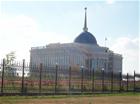 According to Mr Nazarbayev the innovations are essential. The Eurasian union has to be built upon a competitive economic alliance, “a territory of mighty technological breakthrough”. The project has to involve a monetary union, too – Mr Nazarbayev points out at the need of an “Eurasian supra-national payment unit” (similar to the former foreign rouble) that has to evolve to a strong reserve currency.
According to Mr Nazarbayev the innovations are essential. The Eurasian union has to be built upon a competitive economic alliance, “a territory of mighty technological breakthrough”. The project has to involve a monetary union, too – Mr Nazarbayev points out at the need of an “Eurasian supra-national payment unit” (similar to the former foreign rouble) that has to evolve to a strong reserve currency.
Lukashenko: Eurasian USSR
Expectedly, among the three “Eurasians”, the most lacking in personality is the president of Belarus, Alexander Lukashenko, who presented Minsk’s rationale two weeks after Mr Putin's article, again in “Izvestia”.
Mr Lukashenko, considered to be the last dictator in Europe, lavishly praises his Moscow  patron and mirrors his thesis that the Eurasian Union should build upon CIS. His nostalgia about the Soviet era surpasses even that of the Kremlin master: “I reckon the break-up of the USSR as one of the most profound and tragic mistakes of the 20th century. It was possible and it was necessary to improve it and to change it but not to destroy it”. No surprise here: Mr Lukashenko was the only member of Belarus’s High Council, who in December 1991 voted against the ratification of the Belovezh agreement that spelled out the end of USSR.
patron and mirrors his thesis that the Eurasian Union should build upon CIS. His nostalgia about the Soviet era surpasses even that of the Kremlin master: “I reckon the break-up of the USSR as one of the most profound and tragic mistakes of the 20th century. It was possible and it was necessary to improve it and to change it but not to destroy it”. No surprise here: Mr Lukashenko was the only member of Belarus’s High Council, who in December 1991 voted against the ratification of the Belovezh agreement that spelled out the end of USSR.
The Eurasian version of Mr Lukashenko requires an even stronger integration with the closest neighbours. Belarus’s president imagines an interaction with the EU that should one day lead to a common economic space from Lisbon to Vladivostok. The Eurasian union has to be a “powerful partner of EU” but, according to him, much depends on the Europeans and their readiness to co-operate as equals in the project.
Utopia in a time of transition countries
In a time of rather fast political turnovers a megalomaniac project such as this one verges to utopia. Despite the campaign-like activity and the deeply rooted public nostalgia for the Soviet empire, that lies in the project's fundament, it remains a theoretic construction and one that is mostly meant for internal use. The idea is summoned to avert the attention not only of the internal but also of the external observers from the actual tragedy in those countries.
In the last 15 years Russia has often compensated the internal democratic deficits and the missing civil participation with foreign policy activity.The crush of the ambitions for modernisation, back from the time when Vladimir Putin transferred the presidential powers to Medvedev, is obvious. They both start to realise that the patience of the Russian people has its limits. The Russian economy continues to rely mostly on export of raw materials and to lag behind in technologies, while bureaucratic arbitrariness hinders every business that has not been blessed by Kremlin. Since Mr Putin is on the wheel, Russia has gained 1.5 trillion dollars from oil sells but has built with this money not a single highway. “In contrast, Mr Putin has 26 palaces”, says Yulia Latinina, a commentator.
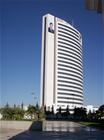 The warming-up of the Eurasian dish seems to be serving (at least for a while) to the pumping-up of the Russian spirits that have suffered some blows on the borders of the empire. Whilst in South Caucasus Moscow presents itself as peace-maker, in its own Caucasian regions its control is weakening. Despite the fiasco of the Orange revolution in Ukraine, the country has decided to go its own way and makes court to Europe – something that Moldova seconds.
The warming-up of the Eurasian dish seems to be serving (at least for a while) to the pumping-up of the Russian spirits that have suffered some blows on the borders of the empire. Whilst in South Caucasus Moscow presents itself as peace-maker, in its own Caucasian regions its control is weakening. Despite the fiasco of the Orange revolution in Ukraine, the country has decided to go its own way and makes court to Europe – something that Moldova seconds.
Mr Putin has no other choice but to seek frantically new political content for his new presidential term. “Undoubtedly, the Eurasian union will be among its main priorities in the next 6 years”, explained his spokesman Dmitry Peskov.
In Kazakhstan, where the salaries in the petrol and gas sector were cut and even staff reductions were made, some discontent is also taking shape (for now it is only within the sector) and makes Nazarbayev to try to compensate with the old political trick of the visionary promises. Alexander Lukashenko has always been unpredictable.
But even the strategists, who are closest to the power, are sceptical about the new trinket of the leaders that are striving to preserve their power. According to the former Kremlin political technologist Gleb Pavlovsky, the political integration has to be put aside for a time and to be replaced by plans for integration structures in concrete sectors. “Without an established economic interaction it is pointless to talk about a political one. Not a single post-Soviet country has a government that is capable to take responsibility for its future. Unfortunately, we live in a time of transition countries. That is why the Eurasian union is nothing but a dream”, says Pavlovsky, who up until this spring worked for President Medvedev and now heads the Effective Policy Fund.
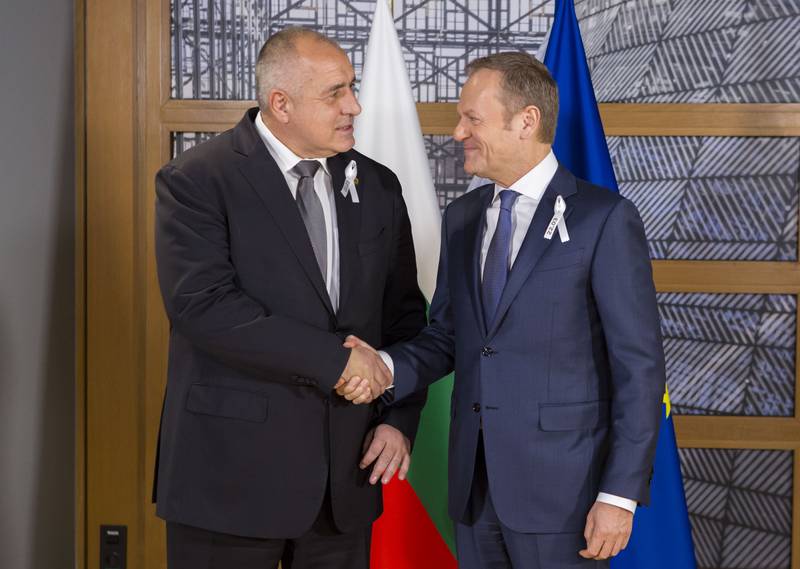 Boyko Borissov, Donald Tusk | © Council of the EU
Boyko Borissov, Donald Tusk | © Council of the EU Boris Johnson | © Council of the EU
Boris Johnson | © Council of the EU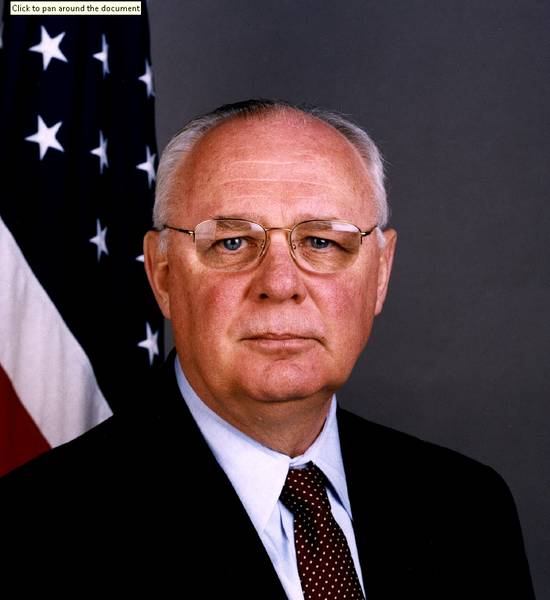 James W. Pardew | ©
James W. Pardew | ©